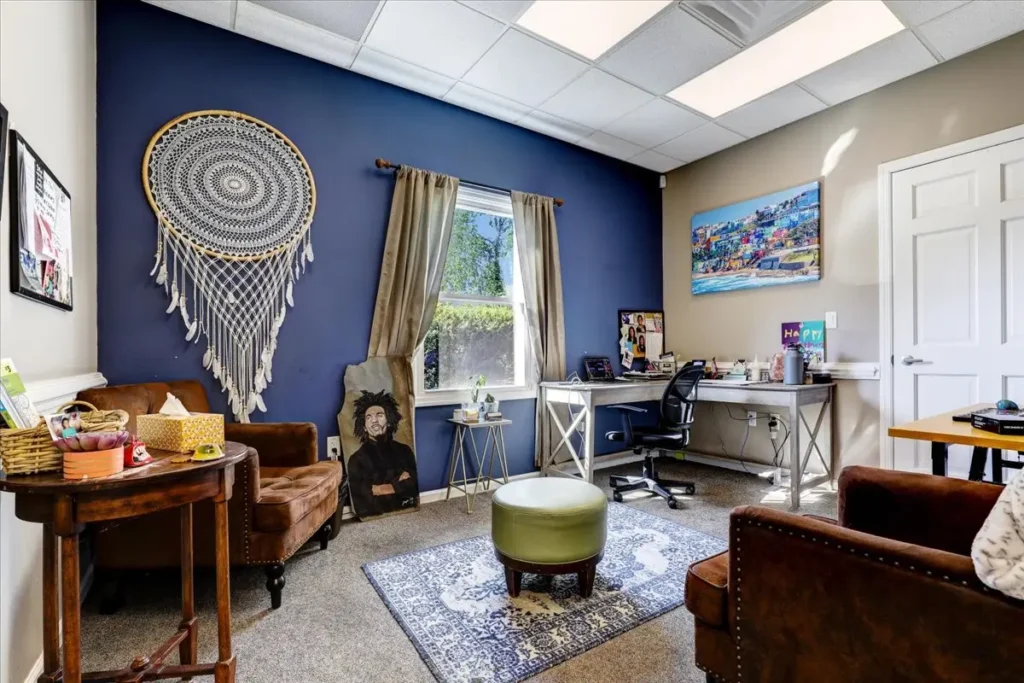Explore our multiple pathways to lasting recovery at our mental health & addiction treatment center in New Jersey at Relevance Recovery.
We offer a free bi-weekly group for families. We recognize that this journey impacts the entire family unit.
Join us bi-weekly for an organized support group to learn tools and techniques to help yourself and your loved one navigate their treatment and aftercare.
When: Every Other Tuesday at 6PM
Where: The comfort of your home! All meetings are held virtually.
CLICK THE LINK BELOW TO JOIN
Meeting Passcode: family
https://relevancebh.doxy.me/familysupportgroup
Family therapy recognizes that mental health and substance abuse often stem from deeper issues within the family dynamic. By working together and exploring these underlying factors, families can break the cycle of destructive behaviors and find healthier ways of functioning.
This collaborative approach allows family members to support one another, fostering understanding and empathy. It provides a safe space for open communication, where everyone’s voice is heard and valued.
Through targeted interventions and evidence-based techniques, family therapy equips families with the tools to navigate challenges, build resilience, and promote long-term recovery.
If you or your loved one is struggling with mental health or substance abuse, consider the power of family therapy. Together, we can break the cycle and foster healing within the entire family unit.


At Relevance Behavioral Health, we focus on treating a wide range of mental health and substance use issues.
Our approach emphasizes tailored treatment plans that use effective and holistic strategies, promoting lasting recovery for our clients.
We work with most major insurance carriers to help provide affordable, accessible treatment options to those who need it most. Our admissions coordinators can answer all of your questions. Call for a confidential assessment and insurance verification.





















Family therapy, also known as family systems therapy, is a form of psychotherapy that focuses on the family unit as a whole.
It recognizes that mental health and substance abuse often stem from deeper issues within the family dynamic. Unlike individual therapy, which primarily addresses the concerns of one person, family therapy involves all members of the family in the therapeutic process.
Family therapy offers numerous benefits in combating mental health and substance abuse. By involving the entire family, it creates a supportive network that can contribute to successful treatment outcomes. Some of the key advantages include:


Family therapy typically involves a series of sessions led by a qualified family therapist. The therapist creates a safe and non-judgmental space for family members to explore their emotions, thoughts, and behaviors.
During the initial sessions, the therapist works to establish rapport and build trust with each family member.
Once the therapist has a comprehensive understanding of the family’s dynamics, they guide the family through targeted interventions. These interventions may include:
Family involvement is crucial in supporting an individual’s recovery from mental health and substance abuse issues. The family plays a significant role in providing emotional support, encouragement, and accountability. Some ways in which the family can support recovery include:
Our expert admissions coordinators will create a custom plan for you.
Resistance to family therapy is not uncommon, especially when family members may feel blamed or judged for their loved one’s struggles. However, addressing this resistance is essential for the success of therapy. Some strategies for overcoming resistance include:
When seeking family therapy, it is essential to find a qualified and experienced family therapist. Consider the following factors when selecting a therapist:
Mental health and substance abuse can have a profound impact on individuals and their families. By embracing the power of family therapy, families can break the cycle of destructive behaviors and find healthier ways of functioning. Family therapy provides a collaborative and supportive environment where everyone’s voice is heard and valued. Through targeted interventions and evidence-based techniques, families can navigate challenges, build resilience, and promote long-term recovery. If you or your loved one is struggling with mental health or substance abuse, consider the transformative potential of family therapy. Together, we can break the cycle and foster healing within the entire family unit.